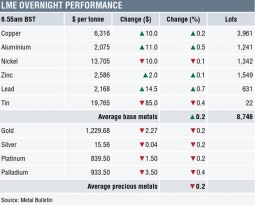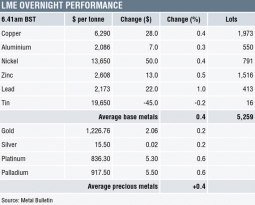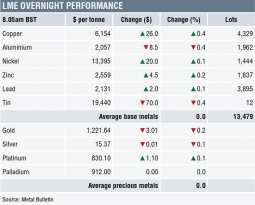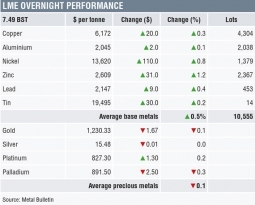With strengthening economic outlook and growth in major industries, the mood was upbeat at the Minor Metals Trade Association’s meeting in Dublin this week.
Production set to ramp up on new aircraft models and engines, after initial hiccups, and accelerating car production and demand – with electric and hybrid power systems challenging diesel for fuel efficiency and emission cuts – are all driving long-term metal demand.
But some of the consumption forecast has been moderated in the medium term as technical problems have delayed the entry of new engines into service and the uptake of new aircraft that need them has been slower than expected. Both Boeing and Airbus reported lower deliveries in the first quarter, and orders are slowing down as the industry moves onto delivering its current backlog of orders.
Airbus netted just six orders for commercial aircraft in the first quarter due to cancellations primarily on its new engine option single-aisle jets powered by Pratt & Whitney PW1100G geared turbofan engine. Both Pratt and Airbus are now backloading delivery schedules towards the end of the year.
And Pratt expects to deliver only 98 rhenium-hungry F-135 military jet engines this year, compared with a target of 200 per year, the MMTA conference heard. The engine maker now expects its rhenium demand to double, rather than more than double by the end of this decade.
Meanwhile its cobalt demand is set to rise by 50pc, and demand for nickel and titanium is set to rise by around 1mn lb/yr each in a similar timeframe.
Both nickel and titanium content in engines and airbody components are being challenged by new lightweight and corrosion resistant alloys such as titanium aluminiudes that are higher in aluminium or aluminium-lithium alloys. And inventories of titanium remain high in the aerospace sector, constraining prices, almost a decade …
Read More
Source: Metal Pages
WEEK IN REVIEW: Metal markets gain confidence
Recent Posts








